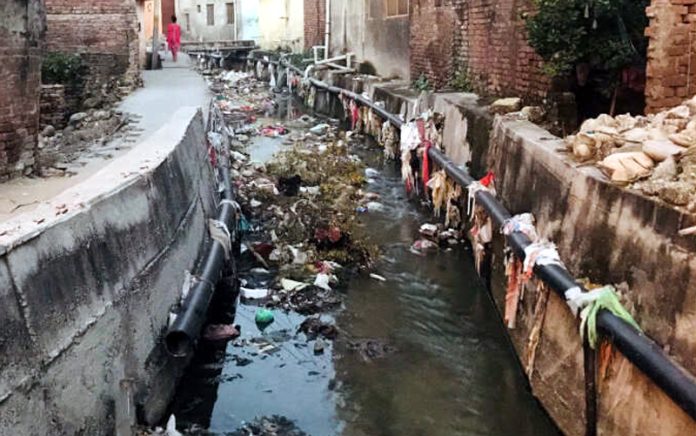The construction endeavours of nearly ten waste treatment facilities, strategically situated in diverse regions of the Valley as part of the flagship Swachh Bharat Mission, have experienced a pronounced deceleration, primarily attributed to the protracted delay in securing the necessary funding. These waste treatment plants (WTPs), strategically located in ten Urban Local Bodies (ULBs) across the Valley, constitute an integral facet of the longstanding and imperative transformation of J&K’s municipal waste management infrastructure, an imperative pursuit aimed at ameliorating severe environmental concerns stemming from the haphazard handling of municipal waste. Nonetheless, the protracted funding delay has severely impeded the timely culmination of these vital facilities. The establishment of these waste treatment plants forms an integral component of the Action Plan for the Establishment of Solid Waste Management in the 40 ULBs within the Kashmir Division. This meticulously devised blueprint secured Governmental approval with a substantial budget allocation for the efficacious management of the prodigious waste output, amounting to a staggering 456 metric tonnes per diem.
The National Green Tribunal (NGT) and Pollution Control Board have persistently emphasised the matter of scientific solid waste management. Regrettably, despite the passage of numerous years, the set objectives remain elusive. These installations are not merely waste treatment facilities; if diligently utilised, they possess the potential to metamorphose into lucrative assets for ULBs. A sincere and earnest approach is imperative at this juncture, for the mere construction of these plants will not substantially alleviate the predicament. Waste management has proven to be an intractable conundrum for municipal corporations and ULBs. Every city is ensnared in the quagmire of waste handling. Presently, this solid waste is unceremoniously dumped in the open at designated sites. These sites, in turn, have transformed into a veritable living nightmare for the neighbouring residents. Stray canines, houseflies, and mosquitoes have become unwelcome residents in the vicinities proximate to these dumping grounds. What exacerbates the situation is the havoc wrought by rainfall, as a substantial portion of the waste is carried onto adjacent roads, effectively transforming them into waterlogged channels. Moreover, the contaminated water permeates the groundwater, inflicting pollution on it. The most grievous harm befalls the nearby water bodies, as a significant portion of this tainted water finds its way into them. The toll extends beyond environmental degradation; it imperils human health. Outbreaks of waterborne maladies such as typhoid, cholera, and jaundice are alarmingly frequent in these areas. When we factor in the cost of these indirect damages, it dwarfs the expenditure on these plants themselves.
The NGT has already issued formal notifications to the Chief Secretaries of all states and UTs and the Union Ministry of Jal Shakti in a legal matter about the flagrant violation of the tribunal’s edicts regarding the contamination of diverse river sections throughout the country. The matter is serious enough to warrant immediate attention. Many such treatment facilities have been successfully executed and inaugurated. Consequently, there are no substantive technical impediments that should preclude the completion of the remaining installations. Given that all these treatment plants have been assigned specific deadlines for their culmination and the administrative procedures are being conducted in an online format, it is incumbent upon the higher echelons of authority to diligently investigate and expedite the resolution of any imminent challenges without delay.
Considering the magnitude of these damages, it is incumbent upon the relevant authorities to expedite the release of funds, ensuring the timely completion of these essential facilities. In instances where the treatment plants under construction fall short of accommodating the entire waste load, prompt initiatives for securing approvals for additional plants should be undertaken. Solid and sewage waste indubitably represent a long-standing and burgeoning administrative headache. When the Government offers substantial support, these projects should be accorded the utmost priority to finally address this protracted issue.
Trending Now
E-Paper


